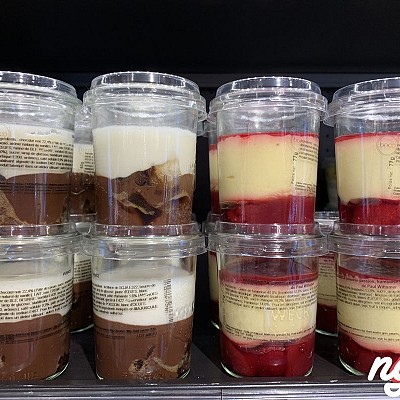As we settle into a new decade, the hospitality industry is undergoing a transformative phase. Changing consumer preferences, immense technological advancements, and a growing focus on ethics and sustainability are reshaping how the world eats and drinks.
If you’re curious about where the F & B industry is going, keep reading. We’ve delved deeper into some of the key food and beverage predictions and trends that will likely define the hospitality industry's future over the next ten years.
Sustainable Food Choices
New trends that speak directly to sustainable choices have begun to emerge amongst consumers worldwide in the food and beverage industry. Climate change has become an even bigger concern as natural disasters, droughts, and unusual weather events continue to arise globally.
No longer a bogeyman in the mythology of environmentalists, we’ve seen the devastating effects of this phenomenon on the environment, vulnerable populations, and food security. Consequently, there’s a greater focus on sustainability that’s influencing how we live and what we purchase.
Vegetarianism and veganism are now getting hailed as more sustainable diets as the pollution caused by animal farming has drawn greater criticism. Raising livestock for human consumption generates 15% of global greenhouse gasses and has devastating effects on agricultural land through deforestation, water pollution and biodiversity loss.
In 2021, there were an estimated 79 million vegans worldwide. In the same year, the alternative meat market was valued at USD 1.4 billion. While the alternative milk market, which is the largest market amongst plant-based foods, brought in USD 2.8 billion.
The plant-based food market’s success can be attributed to the fact that it has wide appeal even beyond vegan and vegetarian consumers. These days, we all expect to see milk alternatives, like almond and oat milk, available at any local coffee shop at a small extra cost. These options have become staples in many households, for vegans, the health-conscious, and those with dairy intolerance.
However, the sustainability of different plant-based options is questionable, and some have proven more environmentally friendly than others. Nonetheless, ethical veganism and greater environmental awareness have made plant-based options more accessible and widely available.
People from all backgrounds with varying dietary preferences and restrictions take advantage of this availability for different reasons. As such, we can expect to see restaurants and caterers make greater efforts to accommodate these preferences. We can also expect restaurants and caterers to adopt more sustainable sourcing practices.
Healthier Eating
A large body of research confirms that customers are willing to pay a premium for healthier food and beverage options.
As plant-based foods have become more popular, there’s been greater emphasis on their health benefits. Studies published by the Journal of the American Heart Association found that eating a plant-based diet can have significant health benefits. This type of diet lowers the risk of heart attack, stroke, heart failure and several other cardiovascular conditions.
Other markets gaining traction include superfoods and supplements as people have become more focused on meeting their daily nutrient requirements. Supplements have become a day-to-day essential for those who can’t meet their nutrient intake through their regular diet for reasons such as chronic health conditions, specific diets, and food intolerances.
Those who prefer to get their nutrients naturally opt for superfoods, many of which have become trendy in the social sphere, such as quinoa, kale, and fermented foods. Superfoods have been praised for their health benefits and high concentration of vitamins, minerals, antioxidants, and other essential nutrients. The superfoods market is expected to grow from a whopping $165.52 billion in 2023 to $269.50 billion by 2028.
Free-from foods, including gluten-, dairy- and sugar-free options, have also gained greater popularity. They cater towards consumers with different health requirements, allergens, intolerances, and preferences.
This trend has extended to beverages too, with the demand for no or low-alcohol beverages, mocktails, sugar-free mixers, and sulfite-free drinks soaring. This is changing what staff learn at bartending school to ensure that establishments can cater to changing consumer preferences and accommodate a growing number of alternative drink requests.
Technologies To Enhance Ethics and Transparency
Useful technologies have come to the forefront to promote greater transparency and more ethical practices in the food industry.
Chief amongst these is blockchain technology. Blockchains are decentralized digital tracking systems with extensive databases that record every step in a product’s journey. This can greatly empower all stakeholders in the food supply change, including farmers, retailers, consumers, and those working in hospitality.
Once data is in the blockchain, it cannot get edited or deleted, mitigating the risk of underhand practices such as food fraud and counterfeit products. This technology also encourages greater accountability amongst stakeholders, promoting ethical labor practices, sustainability and waste reduction.
We can further take advantage of this technology to address food quality issues by identifying where in the supply chain problems arose. This is particularly helpful in extreme situations like the spread of foodborne illness.
Artificial Intelligence for Operational Efficiency
In the food industry, AI-driven systems have a great capacity to enhance operational efficiency. They can analyze extensive data for efficient inventory management, payment processes and waste reduction, saving time and resources.
AI can also elevate the customer experience by streamlining the reservation and inquiries process. AI-powered chatbots, for example, can handle queries and bookings, reducing wait times and providing optimal convenience.
Another way that AI can enhance the customer experience is through its powerful predictive capabilities. It can predict customer preferences using historical data. This allows for the creation of personalized dining recommendations based on past orders, dietary needs, and time of day or year. This can help with menu planning and pricing, giving restaurants an edge over competitors and enhancing customer satisfaction.
A Foodie Future
As new trends and patterns arise in the hospitality industry, we can expect to see countless stakeholders following suit to meet the demands, expectations, and preferences of consumers.
From bartenders to baristas, servers to chefs, managers and owners, everyone in the food and beverage industry will have to keep up with the curve to remain competitive.






































